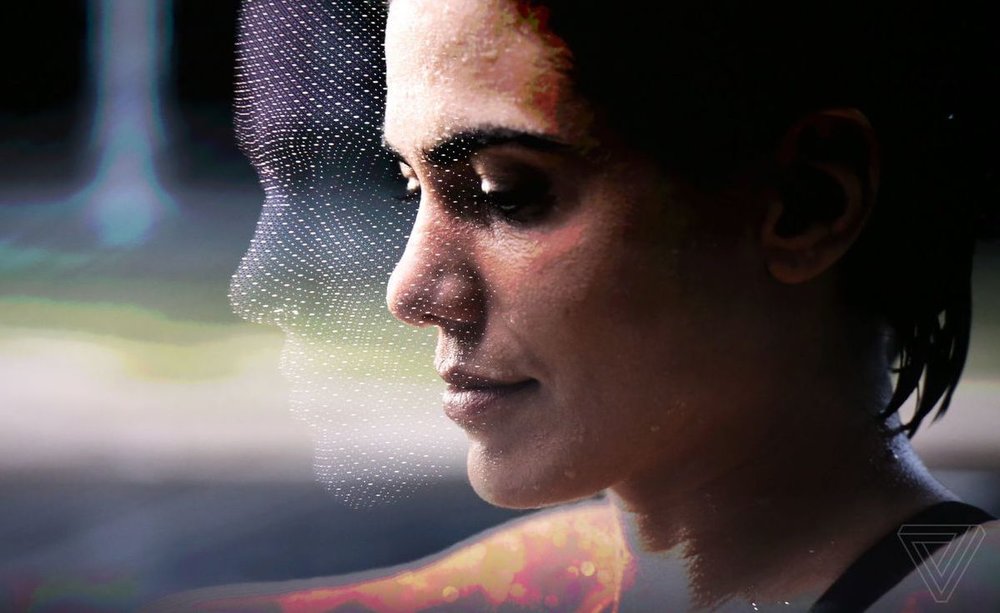
Happy Halloween! Everyone must be getting ready to Trick or Treat tonight, since there were very few big news items for today’s Apple World Today News Update podcast. Here’s what we have:
- Apple denies that it was ever working on anything but Face ID for the iPhone X
- A biometric technology expert is skeptical of some reviewer reports saying that the iPhone X’s Face ID is inaccurate in bright sunlight
- A developer with a great idea for using an underused iPad component has the idea rejected by Apple
The text version of the podcast can be read below. To listen to the podcast here, click the play button on the player below. Apple News readers need to visit Apple World Today in order to listen to the podcast.

Text Version
This is Steve Sande for Apple World Today, and you’re listening to the AWT News Update podcast for Tuesday, October 31st, 2017. Oh, and by the way, Happy Halloween!
Remember all of those rumors over the past year that Apple was intending to embed a Touch ID fingerprint reader in the display of the iPhone X or put it on the back or sides of the device? Well, according to an answer provided to TechCrunch by Apple senior Vice President of hardware engineering Dan Riccio, the company never planned to use Touch ID and from the start they were looking at Face ID as a replacement. Says Riccio in a roundabout way, “I heard some rumor that we couldn’t get Touch ID to work through the glass so we had to remove that. When we hit early line of sight on getting Face ID to be as good as it was, we knew that if we could be successful we could enable the product that we wanted to go off and do. And if that’s true, it could be something that we could burn the bridges and be all-in with. This was assuming it was a better solution. And that’s what we did. So we spent no time looking at fingerprints on the back or through the glass or on the side, because if we did those things — which would be a last-minute change — they would be a distraction relative to enabling the more important thing that we were trying to achieve — which was Face ID done in a high-quality way.”
Most early reviews that we’re seeing seem to indicate that Face ID is working very well, with reviewers saying that it’s reliable, foolproof, and nearly immediate in terms of unlocking the iPhone X. But of course, there are a few reviewers who are spoiling the party by saying that they’re not having a lot of luck with Face ID. Nilay Patel at The Verge and James Martin at CNET said that Face ID wasn’t working consistently in bright sunlight, with Patel saying that he thought the issue could be infrared light interfering with the dot projector and IR reader on the phone. If that’s the case, Apple can probably fix the issue by tweaking the sensitivity when the phone senses bright light and heat. Kevin Bowyer, a professor at Notre Dame who is an expert on biometric technology says that he doesn’t think this is a problem most users will experience. He told Fortune that “I will say that I am skeptical — skeptical that there is any serious performance degradation in any normal ‘direct sunlight’. Sure, there is probably something in some extreme conditions — maybe high noon in Death Valley or something. But I will be surprised if anyone had documented any large problem in normal sunny conditions.” Not to say that I don’t believe the reviewers that say they are having issues, but I think that some of these reviewers go out of their way to turn a mountain into a molehill just so they’ll get more hits at their website.
Sometimes Apple can be a bit obnoxious with developers who try to stretch the limits of the user interface rules. Developer Astropad has an app and display adapter coming out called Luna Display that turns the iPad into a wireless and lag-free Mac monitor. Well, Astropad was looking for a way to bring up a control panel for the software and touched upon turning the front-facing camera of the iPad into a software button — tap on it, essentially covering the camera, and the control panel would appear or disappear. It’s a very cool use of the seldom-used camera that really worked well. Sadly, Apple rejected the update to Astropad’s app, citing section 2.5.9 of the App Store review guidelines. That section says that apps which alter the behavior of native hardware or software elements will be rejected. It’s sad that such a cool use of the camera to solve a user interface problem is turned down simply because it doesn’t meet some regulation to the letter.
That’s all for today; I’ll be back tomorrow afternoon with another edition of the AWT News Update.
